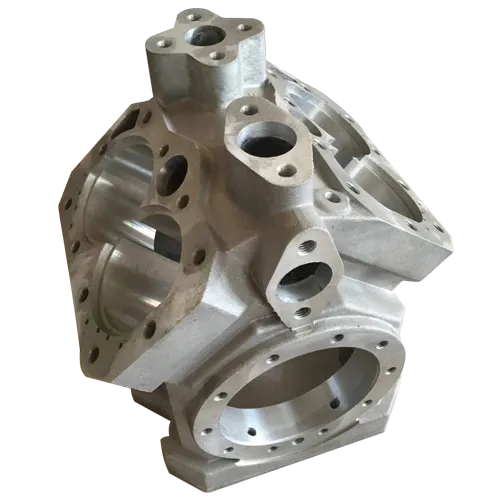Mobile:+86-311-808-126-83
Email:info@ydcastings.com
servo motor housing
The Importance of Servo Motor Housing in Precision Engineering
Servo motors are integral components in various applications, from robotics and automation to CNC machines and aerospace systems. These motors operate with high precision and responsiveness, which is essential for tasks requiring exact movements. However, the effectiveness of a servo motor largely depends on its housing. The servo motor housing serves multiple critical functions that enhance the motor's performance, reliability, and longevity.
One of the primary functions of servo motor housing is to provide physical protection
. The housing safeguards the sensitive internal components of the motor, such as the rotor, stator, and electronic circuits, from environmental factors like dust, moisture, and mechanical impacts. In many industrial settings, servo motors are exposed to harsh conditions, including extreme temperatures, vibrations, and corrosive substances. A robust housing design, typically made from durable materials such as aluminum or high-grade plastics, is essential to ensuring the motor operates smoothly and withstands these challenges.Another crucial aspect of servo motor housing is thermal management. Servo motors generate heat during operation, and without adequate heat dissipation, performance can degrade, leading to malfunctions or even permanent damage. Efficient housing design incorporates heat sinks and ventilation features to facilitate airflow, thereby regulating the motor's temperature. By maintaining optimal operating temperatures, the housing plays a vital role in enhancing the motor's efficiency and lifespan.
servo motor housing

Moreover, the housing design can influence the motor's performance in terms of torque and speed. A well-engineered housing can minimize friction and ensure smooth operation, contributing to the motor's overall responsiveness. Additionally, the housing must support the alignment of components, as misalignment can lead to uneven wear and reduced performance. Therefore, precision engineering in housing design is essential for achieving the desired level of accuracy in servo motor applications.
The housing also impacts the installation and integration of the servo motor within machinery. A well-thought-out housing design facilitates easy mounting and connectivity, which is crucial in automated systems that require quick adjustments and replacements. This ease of installation reduces downtime and enhances operational efficiency, allowing manufacturers to maintain productivity on the shop floor.
In summary, the servo motor housing is a critical element that contributes to the overall functionality and reliability of servo motors. By providing physical protection, enhancing thermal management, improving performance, and facilitating easy installation, the housing significantly impacts the motor's effectiveness in various applications. As the demand for precision and efficiency continues to grow across industries, investing in high-quality servo motor housing will remain a priority for manufacturers aiming to optimize their production processes and ensure the longevity of their systems. The integration of innovative materials and designs in housing development will undoubtedly play a pivotal role in the evolution of servo motors in the years to come.
-
Why Is Choosing the Right Motor Housing Critical for Engine Performance?NewsJul.18,2025
-
Which Impeller Types Best Optimize Your Pump’s Efficiency?NewsJul.18,2025
-
Optimize Maintenance Efficiency with Durable Oil Catch SolutionsNewsJul.18,2025
-
Maximize Pump Performance with Precision-Engineered ComponentsNewsJul.18,2025
-
Elevate Industrial Flow Systems with Precision-Engineered ComponentsNewsJul.18,2025
-
Boost Durability and Functionality with Precision Power CastingsNewsJul.18,2025











